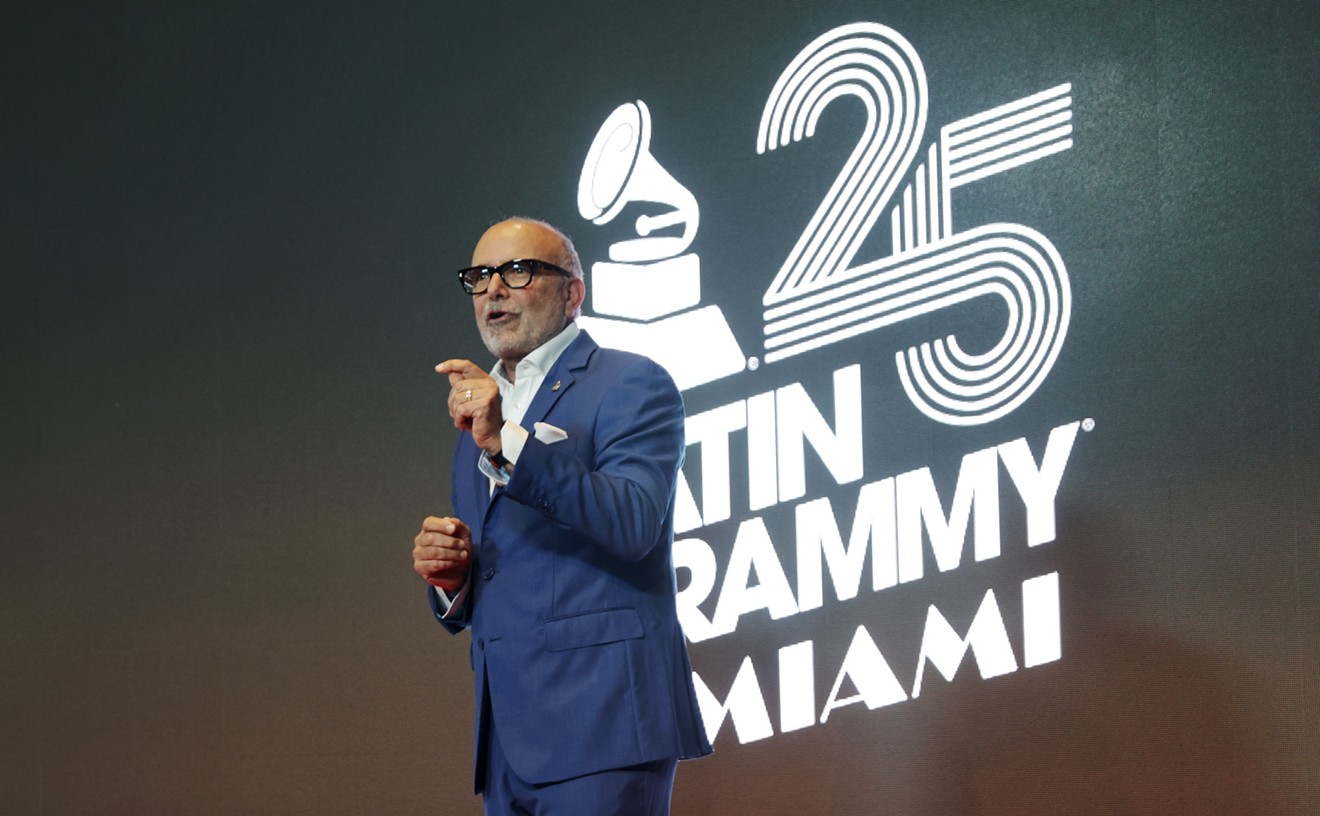Nadia Harris, frontwoman for the electronica-infused reggae band Agape, is bona fide Jah kin. It's evident in her spiritual words, the way she swings her body to the mesmerizing beat of the hand drums onstage, and the way her pure, childlike voice sings to all that is wholesome and organic.
"Rastafari is not just a tradition, it's a natural way of life that [informed] my upbringing," explains Harris, who grew up in Miami and in a sustainable community in the hills of Kingston, Jamaica.
"We never really used the television, and we hardly had radios, so my inspiration was basically the sound of the wind, the trees blowing, the birds, the raindrops," says the twentysomething singer who began writing music at the age of seven.
Harris's father, Winston McAnuff, is a world beat/fusion musician known as "Electric Dread" who is signed to Virgin Records and wrote the "Malcolm X" song performed by Earl 16 and Dennis Brown. Harris's mother, Patricia Constance Harris, is the empress of the Ethiopia Africa Black International Congress Women's Freedom League. In short, her mother is "a freedom fighter," an advocate of the poor who assists her country's most marginalized via education, legal assistance, and "agitatin'" — as her daughter calls it — among politicians. The combination of music and activism had a significant impact on the young artist's own work.
"I mostly sing about unification of all races and Rastafari because that's who I know," Harris says. "I give thanks every day through the words I sing, which are clean, uplifting, and spiritual."
The songs come to her in visions and sounds that she rarely puts on paper. She doesn't have any need to. All those years of meditation have kept the channels open to memorization.
In fact Harris was content with the sound of her own voice and the drums until 2003, when she met Sustainable Recordings producer Erick Paredes during a jam session at the Internet-based radio station The Womb. He came on board as Harris's producer and DJ, adding a band complete with guitar and horns, and even video projections.
"I was looking for someone who was in sync with my music," recalls Harris, who says she's comfortable with the technological additions to her acoustic style.
"It makes it appealing to people who don't have the patience to listen to organic sounds. I want to sing for everyone, so I believe there is a place and a time for everything," she says.
Agape has performed at various electronic music events, including Miami's Winter Music Conference and Detroit's Movement, and the group was recently invited to perform for Miami's Earthdance show at 7th Circuit Studios (228 NE 59th St.). The event is part of a simultaneous series of parties hosting prayers for peace that will take place in 50 countries on September 16. Visit www.earthdance.org for more information.
In addition, Sony Ericsson recorded the tune to Harris's single "Peace Equals Solution" as a ringtone and released the full song on Lounge, a compilation CD for the company's Latin American market.
Harris is driven by the whole soundscape experience. "Even to this day I sit and listen to a lot of different sounds — the rolling thunder, a heartbeat. I'm inspired by simple things," she says.
"That's what I like about Björk. She uses real sounds like paper crumpling," Harris adds as she grabs a piece of scrap paper from the table in front of her and scrunches it between her hands, smiling serenely at the sound it makes.
Making a living off the kind of peace-loving music Harris creates is still difficult in a commercial world, and Harris isn't about to sell out to superficial marketing strategies.
"Sex sells," she complains, which is why she has been selective about accepting gigs mostly for charity events and companies with more of an intellectual edge, such as the Rhythm Foundation, Aquabooty, and, more recently, the opening party for the Brazilian Film Festival.
"Erick and I are basically doing this from the heart," Harris says, but emphasizes the importance of having a community support system that upholds musicians in the struggle for sustainability.
Harris pays the bills by working as a music consultant at Base on Lincoln Road, and sometimes when she must miss work for a gig, her boss personally covers for her so that other employees can attend the show. Harris says other important support people include her producer, her bandmates, her publicist, her family, and the Rastafarian community.
"You have to have a family unit that's close to your heart," she says. Hence the name of the band, Agape (pronounced ah-GAH-pay), a Greek word for love in its broadest sense.
The community feeds off of Harris's love as well. "My ultimate goal is to inspire and uplift," she says of the self-titled debut album she hopes to release this year. "One thing my friends say is 'You know, Nadia, when I wake up in the morning and I put [the song] 'Peace Equals Solution' on, it's like a prayer to God. I feel like I'm thanking him for the morning, for the evening, and for what I'm about to go through in the day.'"
Harris says the song questions how fighting a war — or fighting at all — could possibly create peace.
"My favorite line is 'If peace equals solution, tell me why can't we overstand?' The government is saying they're trying to uphold peace and make things better, but anger never solves a problem," she explains.
In dread talk, Rastafarians say overstand instead of understand because comprehension is an act of empowerment; you're standing over it, not under it, confirms Harris.
The corresponding music video centers on a multiethnic street party where apparent enemies use Harris's music to defuse violence through break-dancing instead of fighting.
Even offstage, Harris's sense of universal community is ever-present. She greets everyone with a bear hug, holds their hands while conversing with them, and bids farewell with a strong Rasta message: "One love!"










